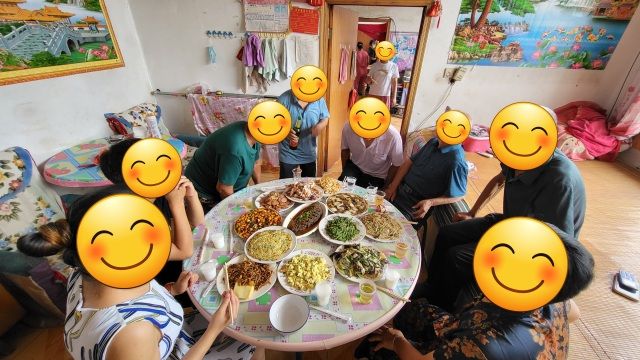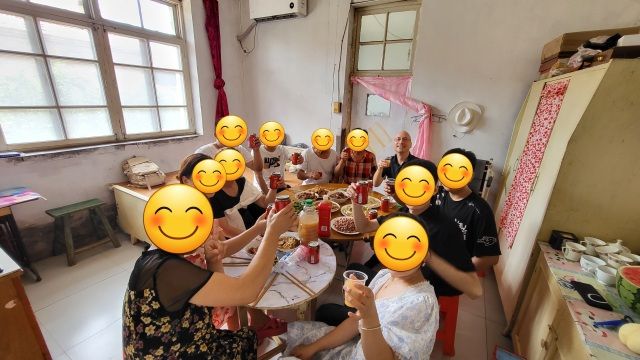Dining Culture in China
प्रकाशित: 14.08.2024
समाचारपत्रको सदस्यता लिनुहोस्
The way meals are taken in China is perhaps one of the biggest differences between Western and Chinese culture. Therefore, it can be quite an adjustment for a European and requires significant adaptation effort.
The Chinese enjoy eating a lot, and I had the impression that meals are not divided into breakfast, lunch, and dinner, but occur almost hourly. The numerous dishes and side dishes are placed on plates and bowls on the large round table, where everyone uses their chopsticks to take directly from each dish. Everyone sits around the large round table. Often, Mantou is served with the meal, which are small steamed buns that can also be filled with dates. Sometimes there is a soup for each person in small bowls, which is slurped due to the lack of spoons. Speaking of spoons, I managed to use only chopsticks the whole time, and I can proudly say that I have only eaten with chopsticks. However, I always asked for a small empty bowl where I 'stored' my food to prevent it from falling off while transferring it from the center of the table to my mouth. But the technique of eating with chopsticks can be learned. Because the chopsticks taper at the end, it is not easy to pinch the tips together to grab food. To achieve this (otherwise the food falls), I keep a distance between the chopsticks with my thumb. With my index and middle fingers, I press one chopstick at the tip against the other chopstick, which I balance with my ring finger. The little finger has nothing to do and probably laughs at my clumsy chopstick handling. I often need to adjust the length of the chopsticks, but it works quite well, and I can grab even the smallest zucchini strips like a pro. You can grab only very little food with chopsticks, which means there is a constant journey from the plates to the mouth. The mountains of food are surprisingly cleared away quickly. But even the Chinese drop food or take several attempts to grab it. Why they haven't adopted the more convenient knife, fork, and spoon in their culture remains a mystery to me. There is always a lot of food left over from the immense quantities of vegetables, meat, tofu, seafood, mushrooms, and nuts, as it is considered bad luck to finish everything. Constantly, food is offered to the other diners by taking food and placing it in front of others or pushing the plate in their direction. Thus, the food circulates. This custom can create an awkward situation at a hotel breakfast buffet. Because not only does everyone take food for themselves, but they also bring food for others. The result is easy to imagine: mountains of food are then on the table, a quantity much larger than needed, while the conversation mostly revolves around who is eating what.
So far, so good, but now to the unusual part of shared meals. One does not simply refrain from eating during a conversation; discussions continue with full mouths. By the way, one of the top topics of conversation is that I do not eat meat, while they meticulously ensure that vegetarian dishes are nearby. Unusual table manners especially include smacking and loud belching. The latter can go on for hours after the meal and is particularly unpleasant for me. Food scraps, such as bones, fish bones, eggshells, banana leaves, etc., ideally end up on the tabletop, but often also underneath the table. The shells of sunflower seeds or peanuts are tossed onto the floor in the room. After the meal, everything looks like a large battlefield, and one must be careful not to step in leftover food and spread it throughout the apartment. Now it also explains the aversion to carpeted floors in Chinese homes.
I completely fail at one custom. It is customary for younger people to refill the drinks for the older ones. I know the custom but always miss the right moment since one does not wait until the drink is finished. But fortunately, my wife takes care of that for us. On the other hand, I shine when toasting with drinks and hold my cup lower than the others, which expresses respect. I was already familiar with this rule and could score points, as even when my counterpart tried to go lower, I was faster.
समाचारपत्रको सदस्यता लिनुहोस्
जवाफ

यात्रा रिपोर्टहरू चीन




